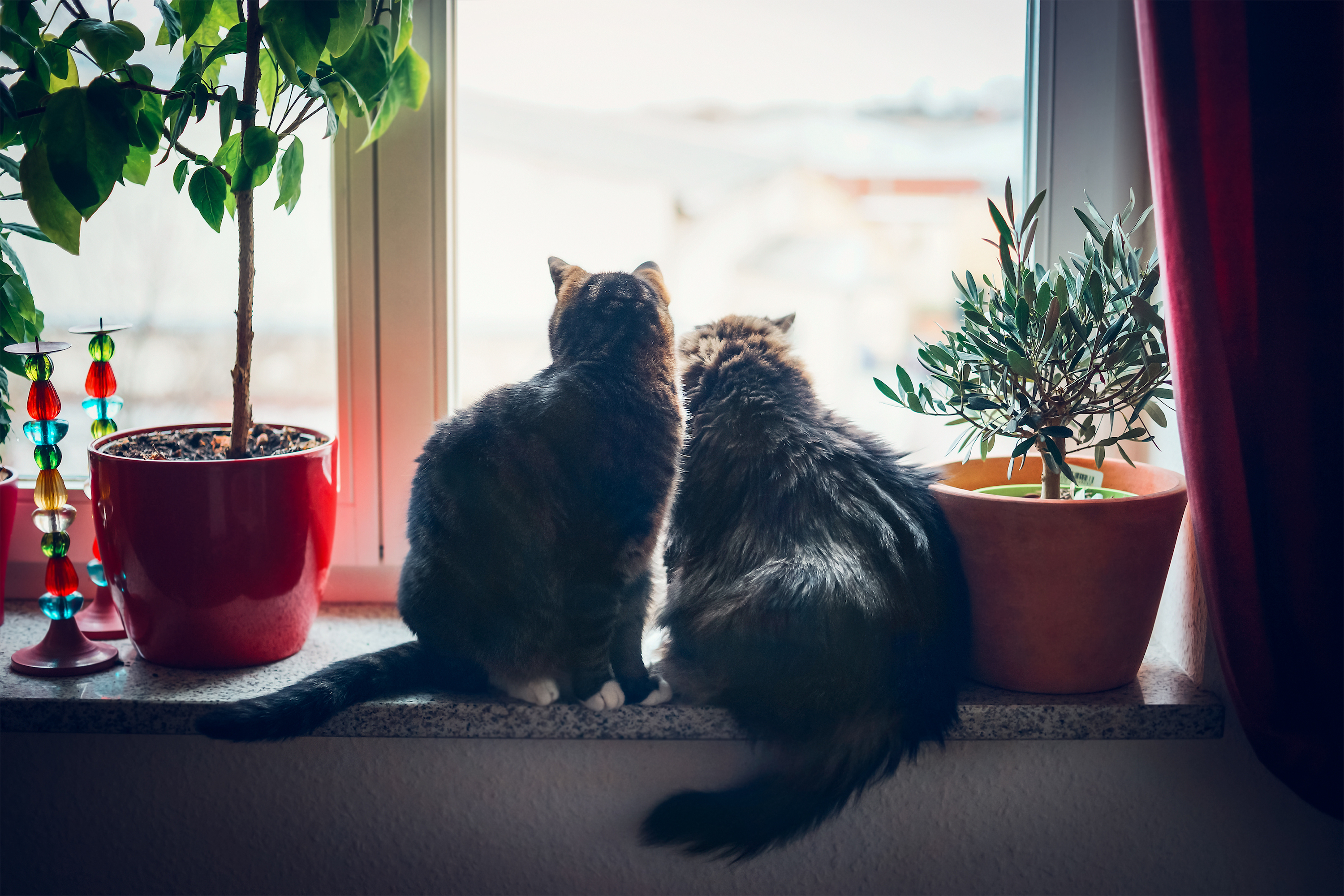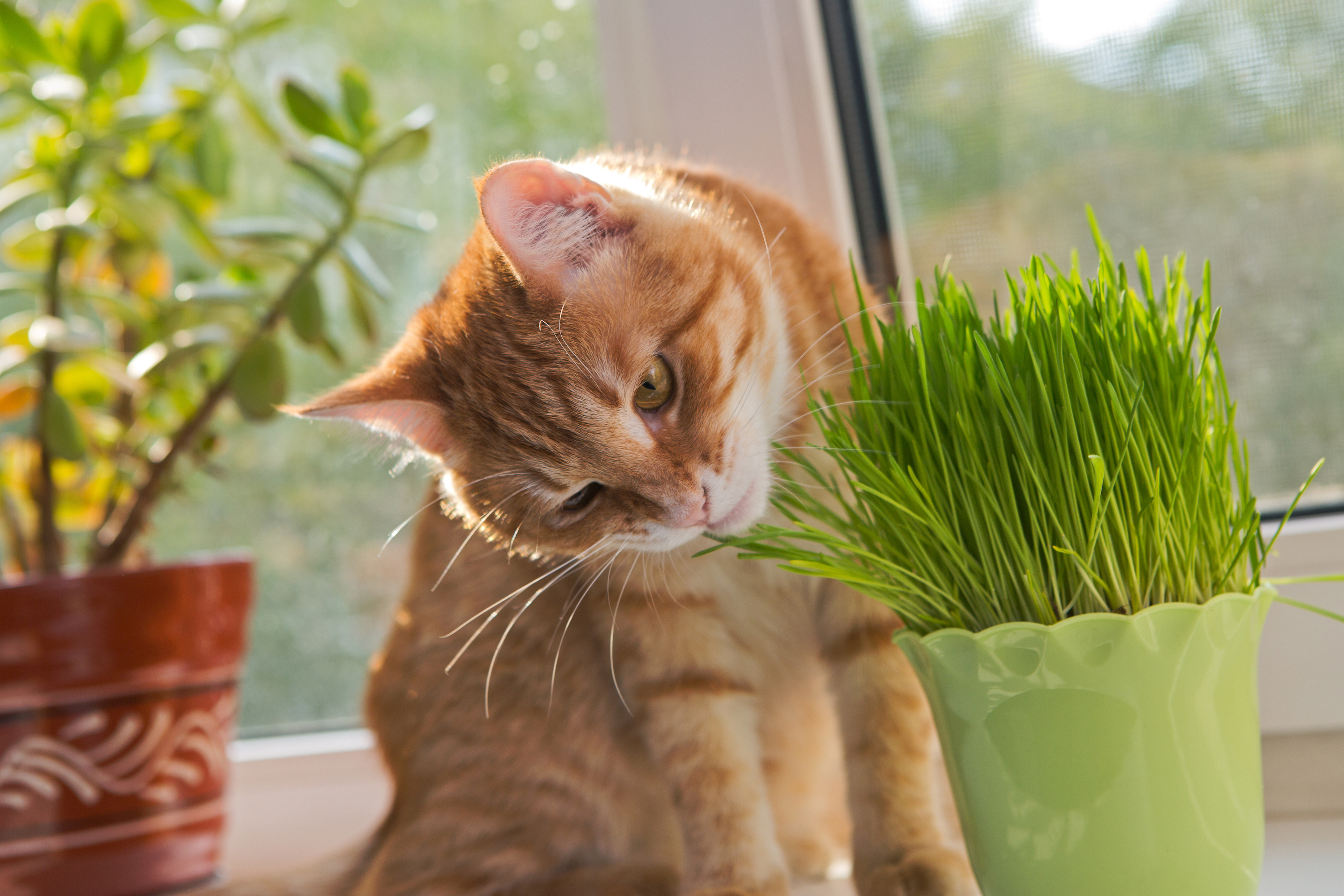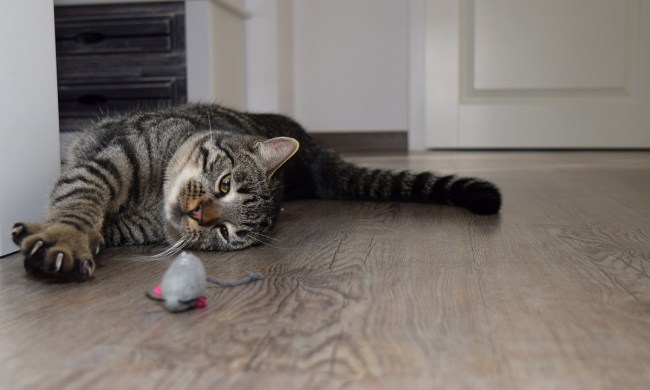When you bring an animal home, you put a lot of time and effort into pet-proofing the place. Remember that your house is theirs as well and so it must be safe for them from top to bottom. Cats especially can get to those really high-up ledges or small out-of-the-way nooks that allow them to sneak into spots and get at things. While this presents a fun way to hide their favorite toy or a little snack, it also means you have to put in a lot more effort to make it feline-worthy. One major obstacle becomes house plants as even those hanging from the ceiling or on top of the bookcase are fair game for a kitty. While there are a few circumstances in which a cat eating flowers is no big deal, mostly this can bring you big vet bills and your cat some uncomfortable digestive issues.

Why does my cat want to eat flower arrangements?
There could be a few reasons your cat has developed a taste for your plants, including that she just likes the flavor. We all know that catnip positively gets our mousers into a frenzy, but other plants can attract them as well. A few like mint will entice your animal into taking a nibble and we bet she’ll come back for more. In small quantities, this is probably fine, assuming you don’t see any throwing up or bathroom issues afterward. But why do cats eat plants that don’t look or smell appetizing? In some cases, it could intentionally be to throw up but more likely they’re curious about the world and using their tongues to explore. Sometimes plants catch a kitty cat’s eyes as well if their leaves blow in the air or hang from the ceiling, just begging your little lady to attack.
What flowers are toxic to cats?
A few plants are perfectly fine for your pet provided that she isn’t allergic and doesn’t have a reaction (check with your vet before feeding anything out of the ordinary). A few are deadly, though, and should be kept out of homes where hungry cats might decide to get themselves a little snack. These include daffodils, lilies, carnations, and poinsettias, very common and very poisonous to your pet. You can just remove them as necessary from any arrangements before they come into the house (maybe an outdoor vase would work for you if the animals stay indoors). Keep an eye on your kitty even if all the flowers make it onto the safe list like roses and tulips. Though they don’t count as toxic, they can still cause digestive issues.

How to make bouquets unappealing to cats
One thing you can do first off is to test your cat with a plant she’ll like and see if he eats it. Some creatures never even notice plants, so you won’t have to be as concerned (maybe still keep the really toxic ones away, though). However, there are a few things you can do to prevent your feline from munching even the most tempting flower.
Put it somewhere she can’t reach
We already mentioned keeping flowers outside but that certainly won’t work for all homes in all weather. Instead, try to find somewhere inside that you have made inaccessible to your cat such as a high shelf with no extra space for her to stand on. You know your pet best and can gauge what “out of reach” means for her.
Place it in an enclosure
Part of the reason to even have plants and flowers is to enjoy looking at them, so putting them out of reach sometimes defeats that purpose. A net, wire cage, or terrarium will all serve to keep the flowers’ sights and smells on the center stage of your home while not enabling your kitty to devour them as a snack.
Repel your cat from the area
Some owners use sticky tape right around the vase or even spray some cat repellent nearby to keep their kitties at bay. Remember, though, that while that works for an everyday space, some of these plants might tempt your feline so much that she’s willing to look past it and take a gander anyway.
As much as we hate to admit it, some cats just won’t be stopped and you may wind up having to rehome your plants if you bring in a particularly green-loving beast. You can also opt for environmentally friendly paper flowers, which last forever, or natural scents such as essential oils that bring the essence of lavender without the buds. Always try new methods with safe plants and take your cat to the vet immediately if she does ingest something dangerous.



